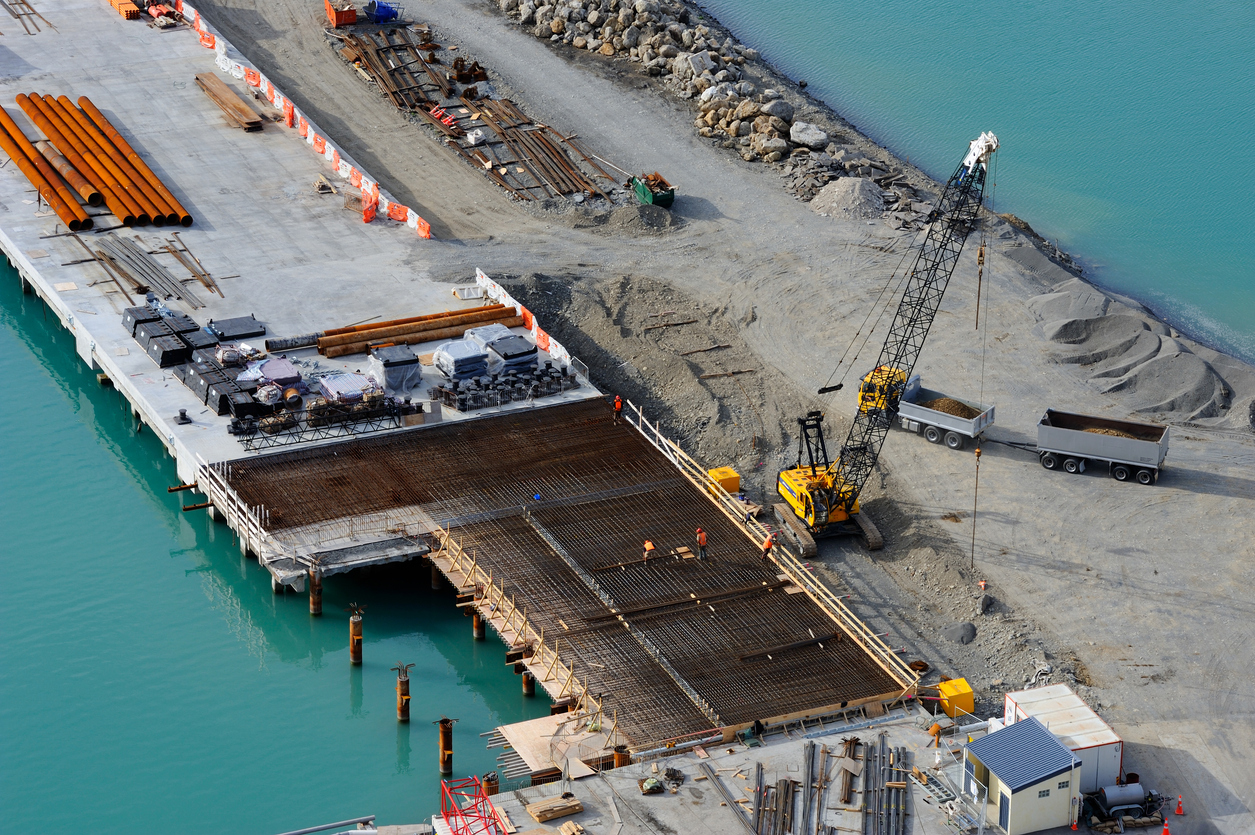
The Evolution of Dock Building Insurance in the Age of Smart Docks
October 23, 2025
For centuries, dock building insurance hadn’t changed much, focusing on familiar exposures: structural damage, equipment breakdown, third-party liability, and worker injuries. Marine contractors knew the risks, and insurance agents knew how to address them.
Today, however, the maritime industry is undergoing a digital transformation. Smart ports and smart docks are introducing advanced technologies that layer new risks onto traditional exposures, requiring agents to rethink how they position coverage for their dock building clients.
Smart Ports and Smart Docks: What They Mean for Contractors
Smart ports integrate Internet of Things (IoT) devices, artificial intelligence (AI), and automation to optimize operations and improve efficiency.
If a dock worker from the past — even the recent past — managed to hop into a time machine and pay us a visit, they’d be amazed by what they saw. Think connected sensors, autonomous vessel docking systems, and digital platforms that provide real-time data on everything from cargo movement to environmental conditions.
Smart docks can even feature automated mooring systems, intelligent lighting networks, and predictive maintenance tools that communicate with centralized control systems.
For marine contractors, this evolution means working with both traditional infrastructure and cutting-edge technology. A dock building project today might involve installing IoT-enabled monitoring systems alongside conventional pilings and decking. Contractors must understand how these systems operate, integrate, and create new exposure points that traditional dock building insurance may not fully address.
Evolving Risks in Dock Building Insurance
The shift to smart docks introduces risks that go beyond physical damage. Advanced robotics and IoT-enabled systems may cost a small fortune in money and time to replace.
Cyber risks now demand serious attention. Smart docks rely on network connectivity, making them vulnerable to cyberattacks, data breaches, and system failures. A ransomware attack on a port’s digital infrastructure could halt operations, creating liability for contractors involved in installing or maintaining those systems.
Liability concerns also evolve in smart port environments. Automated equipment changes worker safety dynamics, requiring contractors to manage new hazards. Environmental compliance becomes more complex when digital systems monitor and report emissions, waste, and water quality in real time. Marine contractor insurance must account for these emerging exposures while maintaining coverage for traditional risks.
How Insurance Agents Can Position Coverage
You can help your clients understand that dock building insurance now requires a dual focus: physical and digital risk management. When advising marine contractors, you’ll want to explain how comprehensive coverage addresses both infrastructure damage and technology-related exposures, including cyber liability and equipment breakdown for high-tech systems.
Proactive conversations matter most during projects involving smart dock installations or upgrades. Agents who understand the technology can position coverage for subcontractors and specialized vendors, ensuring all parties working on smart port projects carry appropriate protection.
Bottom Line
Smart ports are reshaping the dock building landscape, creating opportunities for innovation while introducing risks that traditional coverage wasn’t designed to address. The best dock building insurance policies bridge the gap between physical infrastructure and digital systems, protecting contractors who operate at this intersection.
As the future of maritime logistics continues to evolve, agents who understand these changes can provide invaluable guidance to their marine contractor clients. In short, make it clear to your clients that insuring a smart dock properly is, well, smart.
FAQ About Smart Docks & Dock Building Insurance
What is a smart port, and how does it differ from a traditional port?
A smart port goes beyond a traditional port, using IoT devices, AI, and automation to optimize operations through real-time data and connectivity. Traditional ports rely primarily on manual processes and conventional equipment. Smart ports integrate digital systems that enable autonomous operations, predictive maintenance, and enhanced efficiency.
Why do smart docks create new risks for marine contractors?
Smart docks introduce cyber vulnerabilities, expensive high-tech equipment exposures, and complex liability scenarios involving automated systems. Contractors face risks from technology failures, network breaches, and integration challenges that didn’t exist with traditional dock construction.
How can insurance agents explain dock building insurance to clients in the age of smart ports?
Agents should emphasize that modern dock building insurance covers both traditional physical risks and emerging digital exposures. Frame the conversation around how smart technology creates dual risk layers, requiring coverage that protects against equipment damage, cyber incidents, and liability related to automated systems.
About Merrimac Marine Insurance
At Merrimac Marine, we are dedicated to providing insurance for the marine industry to protect your clients’ businesses and assets. For more information about our products and programs, contact our specialists today at (800) 681-1998.
